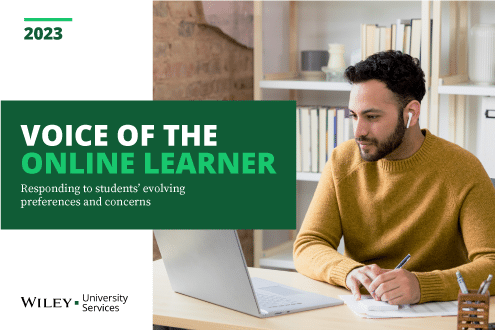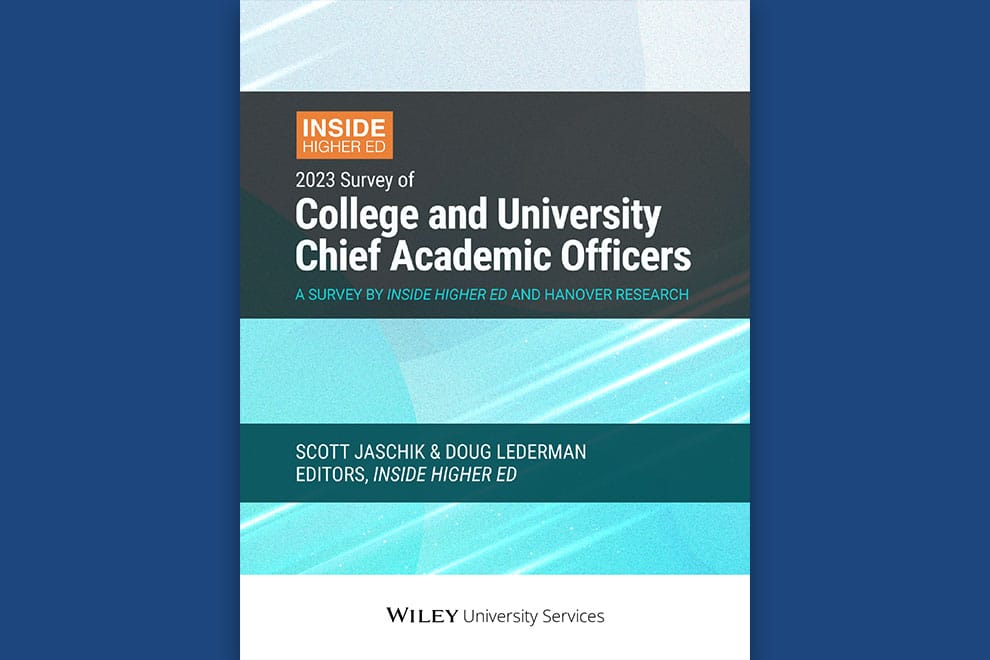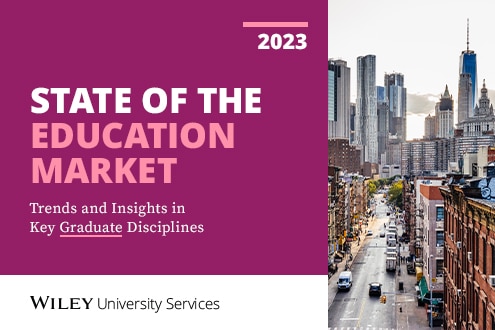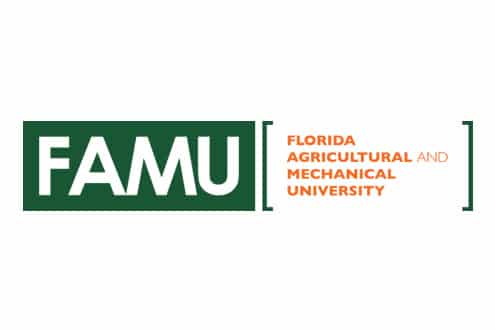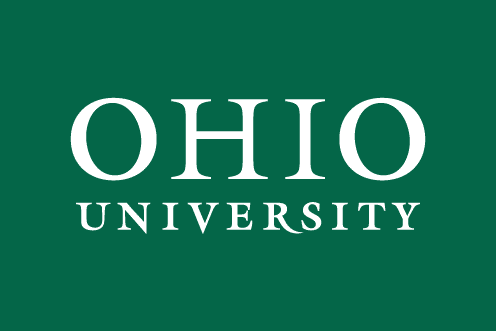Speaker 1:
You’re listening to An Educated Guest, a podcast that brings together great minds in higher ed to delve deeper into the innovations and trends guiding the future of education and careers, hosted by the executive vice-president and GM of Wiley University Services and talent development, Todd Zipper.
Todd Zipper:
Hello, I am Todd Zipper, host of An Educated Guest. On today’s show, I speak with Dr. Angela Jackson, managing partner at New Profit. Dr. Jackson is an impact investing and environmental, social, and corporate governance expert. She’s passionate about modernizing the public education to career system and advancing academic and professional opportunities for women, people of color, and veterans.
Todd Zipper:
Angela is widely published in leading journals, including Harvard Business Review and Stanford Social Innovation Review, and has spoken at numerous conferences, including The Economist, Wall Street Journal, and TED Conferences.
Todd Zipper:
The key takeaways from our discussion today, first, how New Profit is bringing the principles we see in venture capital into philanthropy. Second, why every student should have access to good coaching so they can succeed in the corporate world. Third, why we should invest in individuals she calls proximate leaders who have lived the problems we need to fix.
Todd Zipper:
Fourth, the Future of Work Grand Challenge and how it is encouraging innovators to solve the current challenges we see in the workforce. And lastly, the importance of outcomes-based reporting for universities and MOOCs and how government and all stakeholders need to come together to solve.
Todd Zipper:
Hello, Angela, and thank you for being here today on An Educated Guest.
Dr. Angela Jackson:
Hey, thank you for having me, Todd.
Todd Zipper:
All right, so let’s dive in. You started in the private sector and led business development for companies like Viacom and Nokia. Tell us about how that experience in the private sector prepared you for the last decade so focused on education and workforce development.
Dr. Angela Jackson:
Todd, I’m going to take a step back. I came from a working class family. My grandfather worked at a Chrysler factory on the frontline. And I remember, after college, I was the first person in my family to have a corporate job.
Dr. Angela Jackson:
And I remember my friend, when we were in our senior year of college and we were all looking at different offers that we received, I remember my friend, Jen, called her dad who was a VP of a bank and asked him for his advice on her offer. And I realized in that moment, I didn’t have anyone else to call because I was first person in my family.
Dr. Angela Jackson:
And I have to tell you, since that moment, it really stood out to me and had me think about what are other people doing who don’t have folks in their corner who can give them advice on this pathway or even show them that there is this pathway to corporate America?
Dr. Angela Jackson:
So I had a fascination about these pathways from early on because I had made a leap that my family hadn’t made. And at 21, I was making more than my grandfather had made working 40 years on a frontline.
Dr. Angela Jackson:
And so, that really drives my work today and my interest in workforce development. Because I truly believe that if you work a full-time job 40 hours a week, you should be able to make a living wage, and that it really behooves us as society to make these pathways more clear and more transparent on how people can earn, learn, and get on these pathways to better wages.
Todd Zipper:
Yeah, it’s fabulous to just hear that perspective that education is great, but the support network that you need, all these other factors that you need for success, isn’t always there, and that’s obviously stuff you’re working on.
Todd Zipper:
Before we sort of jump in to what you’re doing today, I’d love to hear about your experience dating back to 2008 when you started the Global Language Project and sort of how that informed you for your latest experience.
Dr. Angela Jackson:
Yeah. Fast forward, after working and having a career in the private sector, I headed up new business development sand marketing in Asia Pacific and Europe for many years. I founded Global Language Project because I was living in New York City at the time, and I would volunteer in the public schools.
Dr. Angela Jackson:
And I saw that there was a ton of curriculum on testing and mathematics. What I saw that was missing was curriculum around having global cultural competencies. And I knew that that would be important. So I really came up with this project, idea of Global Language Project.
Dr. Angela Jackson:
And the idea was simple. We really wanted to break the cycle of poverty by giving children exposure to global curriculum, to global jobs that they could use their language skills, and we wanted to do that at the earliest ages.
Dr. Angela Jackson:
So the program that I created, we worked with school districts across country to create world language and culture programs. And these programs started when kids were as young as five years old and would go until they were in high school.
Dr. Angela Jackson:
And what would happen is that they would have a proficiency in a second language like Mandarin or Arabic, and these are languages that most Americans think are hard to learn. But the secret is, Todd, if you start or early, five, it’s easy for children because they just started learning English. They don’t know that it’s supposed to be hard. And in doing that and thinking about it now, that was really a workforce play.
Dr. Angela Jackson:
When I was at Nokia leading new business development there, we looked for people who had proficiency in a second or third language. This was especially important when we were doing business in Asia or if we were doing business in the Middle East. We needed someone on our team that really, one, spoke the language, but, two, really deeply understood the cultural context.
Dr. Angela Jackson:
And when you look at the numbers, back in 2008 and still holds true today, we’re not producing enough American students who have these type of language skills and competencies.
Todd Zipper:
Yeah, it’s such a great observation that a lot of folks, like you mentioned, the New York City Public Schools, have a second language, that’s a real asset for them if they know how to use it in the workforce. So that’s really cool that you did that.
Todd Zipper:
So shifting gears to what you’re up to these days, you are a managing partner at New Profit, which my understanding is it’s venture philanthropy. So I would love for you to kind of give us a definition of what is venture philanthropy and how does new New Profit play in this market?
Dr. Angela Jackson:
Well, it’s really, New Profit has an interesting origin story. So about 22 years ago, our founder, our co-founder now, Vanessa Kirsch, she had the insight on when she was traveling abroad that a lot of entrepreneurs who were solving for social issues, many might say in the nonprofit space, that they didn’t have risk capital to really develop their ideas, to think about scaling their impact. That a lot of the money that these non-profit entrepreneurs had were really restricted to programmatic needs.
Dr. Angela Jackson:
And she saw that with those restrictions, that really stifled innovation. And so, she set out using venture capital principles to really think of a new model, one that’s based on trust and really honoring the insights from entrepreneurs, be they in the social sector, just as much as we do in the for-profit sector.
Dr. Angela Jackson:
And she thought that these entrepreneurs needed unrestricted capital to, one, do their work, but also to have risk capital to think about how do they improve their operations, how do they scale their operations? How do they develop new innovations?
Dr. Angela Jackson:
So at the time when New Profit was founded 22 years ago, it was radical. She would give social entrepreneurs $1 million over the course of three years, three to four years, to invest in scaling their ideas. So New Profit was some of the early investors in Teach for America and Year Up. And these are some of the scaled educational nonprofits that are still the largest organizations that we see, some of the largest organizations that we have today.
Todd Zipper:
Fascinating, and it makes so much sense how you can allocate capital efficiently in the capital market sometimes, in the not-for-profit sector, not so much, but you’re bringing that sort of capital allocation model there. I’d love for you to give us some examples of some of the investments you all have made that you’re focused on.
Todd Zipper:
I noticed Braven was one of the investments that just caught caught my interest about sort of helping learners transition from colleges to strong first jobs, which I know is a big theme for you. So, yeah, let me know one or two would be great to just get some context.
Dr. Angela Jackson:
Absolutely. And, Todd, I just want to add, more than just the capital, people’s hear a million dollars and they think that’s a lot. The other insight that Vanessa had, our co-CEO, was that these nonprofit leaders also needed coaching and development around leadership.
Dr. Angela Jackson:
And so, what New Profit also does is that when we make an investment in a social entrepreneur’s organization, we also take a board seat. That’s very similar for the VC model, that we took a card out of their playbook. And we really work shoulder to shoulder with that entrepreneur on some of the most pressing leadership issues and organizational issues that they have.
Dr. Angela Jackson:
And I can share with you, I founded Global Language Project. I led the organization for eight years. We received literally millions of dollars of investments. There was not one foundation that sat down with me to say, “Okay, Angela, let’s talk about your business model. Let’s talk about what’s your impact? What’s the north star? How can you grow and scale? How can you do it more efficiently?”
Dr. Angela Jackson:
And so many times you have leaders who are doing a phenomenal job in the for-profit sector. They’re focused on their program, but they might not be focused as much on their operations or on their own personal leadership. You hear stories all the time of nonprofit leaders taking less of a salary. There’s not a lot of dollars for their own professional development. So by having a professional board member that New Profit gives to these entrepreneurs, there’s a lot of value in that.
Dr. Angela Jackson:
And so, you mentioned Braven, another organization that I am excited about that’s in the same space as Braven is Beyond 12. And Beyond 12 was founded by Alex Bernadotte. She’s a first generation college student. But she created this vision that every student should have access to good coaching and career guidance.
Dr. Angela Jackson:
And it goes back to the story that I started with talking about my grandfather. If you’ve never had a pathway, who’s in your circle that can help you? Education is one piece, but it’s not a silver bullet. The training. There’s the soft skills and professional skills and how to navigate the corporate world is equally important.
Dr. Angela Jackson:
So what Beyond 12 does is it pairs each learner with a coach, and they give them coaching throughout their college career, giving them coaching on how do you deal with financial aid? What do you do if you don’t understand the curriculum? What are office hours about? That’s a phenomenon that a lot of first generation college students don’t even understand.
Dr. Angela Jackson:
But what’s so phenomenal about Beyond 12, just talking about entrepreneurs who are thinking about how they iterate on their idea, one thing that Alex and Beyond 12 has did, they thought about how can technology make us more effective?
Dr. Angela Jackson:
And so they created the My Coaching app because they knew with one-to-one coaching, they could only meet so much demand. If they really want to scale, they want to think about how they could use technology to drive that effort. And now with the My Coaching app, literally every student can go onto the app. They can get that one-to-one coaching still, but they can also get a series of advice. They can send questions and have them answered in 24 hours. It’s like real-time coaching that really matters.
Dr. Angela Jackson:
It’s essential for a college student who might be up at 10 o’clock at night trying to figure things out. Just to have a real person that they can contact on an app has made a world of difference. And so, Beyond 12 serves about 145,000 students. They’re on track to serve a million students in the next five years.
Todd Zipper:
Yeah, that’s phenomenal. And to put that in context, roughly 20 million college students, a little bit less than that, so that’s a nice chunk out of that pie. And I think it’s so proven that getting the right type of coaching at the right time can really help people stay on track, which is so wonderful.
Todd Zipper:
How do you think, and your investors, if you will, philanthropists, think about sort of metrics and return on investment or return on philanthropy? How does that sort of play into the model, so you can keep sort of the funding coming? Obviously, the models aren’t always self-sustaining, maybe they are, you can shed some light on that, would be great.
Dr. Angela Jackson:
Yeah. So for New Profit, we are looking for organizations that are self-sustaining. So, for example, I’ll go back to the example of Beyond 12. This application that they’ve created, they’re now partnering with community colleges, and the community colleges license this technology to use for their students. And so, that’s a revenue stream that’s coming in.
Todd Zipper:
That’s great.
Dr. Angela Jackson:
And so, when we think about impact, we’re definitely thinking about, one, learners served. Two, we’re thinking about what is the influence? How is this entrepreneur actually moving the field? And thinking again about Beyond 12, using technology to close the distance, to close that gap between counselors and students, is really significant. It’s a need that we’ve known that has been out there for years.
Dr. Angela Jackson:
And then, the other thing that we’re thinking about is what could be the impact on policy? We want entrepreneurs who are humble enough to understand that their one solution won’t solve everything, that they really do have an eye towards the government and policy and systems to understand how they could deploy their solutions in a way that it could be adopted by people across the country and ultimately around the world.
Todd Zipper:
That’s great. So I know you’ve written a lot about how capital and investments are not going to people of color or businesses run by people of color. How do you think we can change that?
Dr. Angela Jackson:
Todd, that’s a great question. Two years ago, New Profit did research around proximate capital and really trying to understand the flows of capital and who was receiving the money. And if you look at the statistics that are out there, we’d say 85% plus of nonprofits, they serve people of color. But if you look at the management of those nonprofits, less than 7% are in executive levels.
Dr. Angela Jackson:
And when you look at nonprofits and organizations that are led by people of color, the amount of money that they receive from grants is less than their counterparts, and it’s also more restricted, so they’re more apt to receive one year grants versus multi-year grants. And if you’ve led any organization, you know that your money is coming in only year to year, it’s really hard for you to do major strategic planning.
Dr. Angela Jackson:
So once we saw that, we had a hunch about that, but once we saw it, one thing that we wanted to do was think about how we as a venture philanthropy and also just a convener of other philanthropists and foundations, how we could put a mark in and think about how we could change that.
Dr. Angela Jackson:
And so, the one idea that we’ve been talking a lot and I’ve written a lot about is called proximate entrepreneurs. And so, really putting out an understanding that we want to invest in proximate entrepreneurs. And they may or may not be people of color, but these proximate entrepreneurs are the ones who have lived the problem that they’re solving.
Dr. Angela Jackson:
Now, we don’t do that out of charity. We do that because we think these entrepreneurs have better solutions. They have more novel solutions. And I’ll give you an example of one investment we made. It was an organization called GirlTrek. It was founded by two African American women, and it was founded to actually get black women walking and moving.
Dr. Angela Jackson:
And when you look at public health over the last two decades, when they’ve looked at the obesity rate among black women, they’ve attributed it to them not moving enough, or it’s just their diet. The two insights that the two founders of GirlTrek brought on was that one is that black women like to be in community. They want a purpose if they’re moving. And so they did, and what GirlTrek does, it gets black women walking and their friends of other races, of course, join them.
Dr. Angela Jackson:
But what’s been so phenomenal is through these walks, GirlTrek, they got over a million women walking. I mean, this program has been lauded by Oprah and others. They have a phenomenal TED Talk if you want to take a look at it. But more than just women walking, what we’ve seen is some of the outcomes were, of course, if people are moving, their weight will be reduced, they’ll have better health outcomes. But what was most interesting to us is the impact it had in the community.
Dr. Angela Jackson:
And so, when you get these mothers and women out walking in their communities, they start seeing things that are wrong. They start making calls to 311 when they see potholes, when roads aren’t repaired. And so, what has happened in many of these communities is not only are the women getting healthy, but they’re really making great impact in their communities that they may have just driven by before this program.
Dr. Angela Jackson:
And so, GirlTrek didn’t take it from a weight loss approach. They really took it from a community involvement approach that has weight loss and health benefits. And that’s the stem from, again, having a proximate entrepreneur. And I could give you other examples from that, but that’s what we’re seeing from entrepreneurs who’ve lived the problem that they’re trying to solve. They understand it in more nuanced ways than some of the, I’m using quotation marks, experts might.
Dr. Angela Jackson:
Because if they’ve not experienced the problem of being a black woman living in a food desert in Chicago, they may not know the barriers to being healthy versus someone who’s lived that, who’s seen it, and who can come up with a solution to address those barriers.
Todd Zipper:
It is amazing how you highlight something as so in your face is going for a walk and what that can do for your health, for your community, and we can take that easily for granted. Speaking of taking for granted, you’ve talked a lot about the digital divide. It’s something that, myself included, don’t think about wifi or broadband or having access to laptops. I mean, these are all kind of ubiquitous in a lot of our worlds, but not in everybody’s world.
Todd Zipper:
And I know you’ve talked about this as a major factor in limiting growth and success. So maybe you can talk a little bit more about that and some of the solutions that you’re seeing to help bridge that divide.
Dr. Angela Jackson:
When we think about the digital divide, the first picture that comes to mind, and maybe some of the listeners have heard this, there was a story on CNN when the pandemic hit and all of the schooling went to remote. I remember seeing this picture of two kids, they looked like they were in elementary school. They were next to a McDonald’s on a phone doing their homework.
Dr. Angela Jackson:
And so, I think a lot of the things that we take for granted, that everyone has a laptop or a phone, we’re forgetting the many people who don’t. When the pandemic hit, I remember my internet was unstable. So I was able to afford to purchase a business line and business level internet. That was $250 a month. And that was because I had my partner on Zoom, I had my stepdaughter on Zoom, and the three of us, our regular broadband couldn’t sustain that. And so, we were able, were fortunate enough to be able to pay that, but I thought, “What about everybody else?”
Dr. Angela Jackson:
Again, one thing, Todd, I think a lot about with the privilege I have and others, who are we overlooking? And broadband is a big issue. Not only is it with people who can’t afford it, broadband is an issue in rural communities. And when you look at the statistics, you still have got a quarter of people who don’t have access to reliable broadband. And as we move into a digital economy, that becomes a barrier to learning. It becomes a barrier to employment when we’re doing more and more remote work.
Dr. Angela Jackson:
And so, we have a partner and a partnership with Comcast, and I’m so proud of the work that they’re doing, to make broadband more accessible and also more affordable. Because that’s going to help us close some of these other divides that we’re seeing. When you see amazing technologies like Kahn Academy that kids can take advantage of, we need to ensure that every child has the capacity do that at home. We’ve seen that with the pandemic.
Dr. Angela Jackson:
And so, it’s really not a their problem, it’s a us problem. And when I think about communities, for example, like in Oakland that are doing community broadband, I think that’s an inspiration that we can take and look at how we scale that across the country.
Todd Zipper:
Yeah. I mean, you hear about solutions that might be pie in the sky, pun intended, with an Elon Musk creating the wireless for the world, those kinds of solutions could be what’s coming. And you’d think it’s like air or water, to survive, you need access to the internet. It’s as simple as that going forward.
Todd Zipper:
I know you’re involved in so many different initiatives. You just mentioned one with Comcast. I know you have another one working with the, I think you lead, the Future of Work Global Fund, which aims to develop innovative technical solutions to up-skill low income and entry level workers at scale. Can you tell us about this project and what you’re seeing as a result?
Dr. Angela Jackson:
Yeah. We launched the Future of Work Grand Challenge last year. And really what it was is that we had saw that the future of work was going to impact people differently along the lines of race and socioeconomic background. And so, we thought, if that’s the case, who are the people thinking about the future of work for the folks who are disconnected, for the 73 million working learners who don’t have a four year degree? How are they learning about these new careers and opportunities that are afforded by a digital economy?
Dr. Angela Jackson:
And when we talked to innovators, they were coming up with ideas, and they’re creating the future work themselves, but they weren’t thinking about the 73 million who don’t have a four year degree. Not because they were overlooking them, it’s because they’re startups and they’re looking for customers and payers.
Dr. Angela Jackson:
And when you look at employers, employers today, there was a research report that came out from Annie Casey and the Joyce Foundation that most employers spend 80% of their professional development dollars on their highest wage earners. And som that leaves very little for entry level workers, frontline workers, beyond compliance and safety.
Dr. Angela Jackson:
And so, what we wanted to do and, and knowing that there wasn’t a customer that would attract the innovator to think about this population, we thought, “What could philanthropy they do?” So we launched this $6 million challenge in collaboration with the XPRIZE Foundation and also MIT Solves and Jobs for the Future, and we put out a challenge to innovators and said to them, “What technical solutions can help people train in an accelerated fashion for jobs in the future?”
Dr. Angela Jackson:
And we had over 1,200 applicants who came in with some of their ideas. And half of those were for-profit, half of them were nonprofit. But what was so interesting about the ideas were that there were careers that, even though I talk about the future of work every day, I hadn’t even heard of.
Dr. Angela Jackson:
So one example is a company called ChargerHelp! It was founded by two African American women in Compton, California. And basically, they created a training that trains people to be electric car charging station technicians. And I love sharing this example because, one, I didn’t know it was a job, and I don’t even know if any of your listeners knew it was a job. And then, certainly, I didn’t know it was a job that actually paid a living wage that you don’t need a four year degree to do.
Dr. Angela Jackson:
These women, seeing these charging stations popping up in their neighborhoods in Compton, just got curious about it, and found out that there was actually a business to be built around it. And so, what they do is they train people over 16 weeks to service these car charging stations, electric car charging stations.
Dr. Angela Jackson:
And the insight that they found was that these stations, they’re actually serviced in the cloud. So someone who is servicing them, they pick up their iPhone, and they just basically troubleshoot through an app. And then, the actual maintenance happens in the cloud.
Dr. Angela Jackson:
They train people and they pay them upwards of $50 an hour to do this work while they’re learning. And then, $50, that job on the open market pays up to $175 an hour. So these women met a need in their community, they helped get people back to work, and they opened up a career path that many people didn’t know.
Dr. Angela Jackson:
We brought them through the Future of Work Grand Challenge to Massachusetts, and they’re replicating what they did in California. And when you think about a state like Massachusetts, where I’m based, looking at policy, we’re going to have more electric cars on the roads, which means that there’s going to be a need for more technicians. And so I’m so thrilled that we have people like ChargerHelp! who are thinking not only about servicing that need, but also bringing more people into the field, into this kind of green economy.
Todd Zipper:
Fascinating. I want to hit on a couple points that you made. You talked about all these millions of workers that are underemployed or not necessarily hitting their livable wage. I’ve also read a stat that you referred to, I think it was around with the opportunity at work that they have estimated that as many 30 million workers have the skills to earn 30% more, but lack of credential to prove it.
Todd Zipper:
And so, that’s really troubling, right? Because at the end of the day, they’re ready. They’re market ready. How can we bridge that divide? And I know you’ve talked about a concept called blind recruitment. I don’t if that plays into it, maybe you can touch on this for a moment.
Dr. Angela Jackson:
Yeah, I want to put a face to those 30 million who have the skills to earn higher wages. Two-thirds of veterans don’t have a four year degree. They’ve served our country. They gained expertise through their military service. And then, they come back to civilian life, and they don’t have a credential to show for it. So when they’re going to jobs that are screening for certain credentials, they’re going to be screened out, and that’s unfortunate.
Dr. Angela Jackson:
I sit on the board now of an organization called Freedom Learning Group. And what they work to do is to take veterans who are returning to civilian life and really capitalize on the skills that they’ve learned, and they pair them with other employers, so they’re doing a lot of IT work, et cetera. But what happens is that we’ve got this pool of workers who are able, ready, and willing, but because some of our hiring practices, we’re missing out on them.
Dr. Angela Jackson:
And so, when we think about that 30 million, it’s more than blind recruiting. It’s really going to take corporations being more rigorous about how they evaluate talent, how they assess talent. And you can’t use the four year degree as a proxy for talent anymore because we know that there’s a major difference and that doesn’t tell the whole story.
Dr. Angela Jackson:
And so, as we get more sophisticated at screening, and there are new technologies that are doing a phenomenal job at this… One company people should look up is called Colaberry, another one is called, HigherMe. They’re being more sophisticated in how they look at talent. They’re looking beyond the resume and seeing what skills people can actually do. They’re using emerging technology like AR and VR to assess someone’s talent.
Dr. Angela Jackson:
And so, that means that we’re going to get a different set of people, and we’re actually hiring people based on what they can do versus what they theoretically can do because they have a degree. And we all know that there’s a big gap in between the two. You’ve got over half of US adults who are doing something very different than what their degree was in. And so, it’s really of critical importance that if we want to make hiring decisions that we’re basing it on talent.
Dr. Angela Jackson:
And one thing I would add, Todd, is there are actually people out there and universities, Reach University is one, that is working to give college credit for actual work experience. So I think that we also, and post-secondary higher education, that we can be better at that. We don’t need people taking intro classes if they’ve been working in the field for five or 10 years. How do we get them credit for work done?
Dr. Angela Jackson:
Now, that takes us being a bit more creative. But if we think about building back better, that’s what this moment, to me, this moment, that’s what it’s going to take.
Todd Zipper:
Yeah, I want to ask you, you talked about the degree not always being the right proximate for capability. There’s been this explosion of short courses, alternative credentials, and obviously, with the advent of the internet and great instructional design online, you’ve got these mega platforms like Coursera and edX and Udemy. How do you see those platforms playing in?
Todd Zipper:
They’re low cost. They’re quick. You get some kind of credential if you want it. But you read some of the stats and the finishing rates are quite low. It seems like people already with college degrees are the ones using the platforms, a lot of international. Do you see these platforms playing out in some of the solutions that are working for some of these 30 million workers that are not getting the credential, the dollars amount that they deserve?
Dr. Angela Jackson:
Yeah. Todd, I love the point that you just made about some of these platforms the outcomes are not there because they weren’t designed for that 30 million of workers. They were designed for someone who already has a four year degree. If you look at Coursera, if you look at Harvard edX, and these are things that, not that I’m saying, if you look at their founders and articles they’ve written, they’ve admitted to that. And Harvard just recently said they wish they could have done better with that, with people who didn’t have a four year degree.
Dr. Angela Jackson:
With the Future of Work Grand Challenge, because we’ve centered it on people and created these solutions for people who don’t have a four year degree, we’re seeing better outcomes. And one of the things that we’ve asked these entrepreneurs to do and which they’re doing is that they’re not reporting, the impact isn’t how many people were trained, the impact for us are how many people were trained and placed in living wage jobs according to the MIT calculator?
Dr. Angela Jackson:
And so, I’ve been a big proponent of really pushing for labor market outcomes. If you talk to any worker, no one trains for training’s sake, most people, especially in that 73 million who don’t have a four year degree, they’re training because they’re trying to move up in their career. They’re trying to get a raise or they’re trying to get a new position.
Dr. Angela Jackson:
And so, when we look at these new platforms, we need to ask those critical questions. How many people have gone through the program? How many people have landed jobs? What has been the wage increase? And I tell people every day, if a program can’t tell you that, you should run the other way because they’re not really tracking what matters to you. And I think that’s what’s really important.
Todd Zipper:
Yeah, I want to double click on that because I’m right there with you. This idea of outcomes-based reporting, I had spoken to a college president the other day who was talking about it’s not about retention or graduation rates, it’s about, did we get somebody a job and did we get somebody a career that they’re on a trajectory for?
Todd Zipper:
And yet, the system isn’t really built around that. And so, the government gives out, I don’t know what the number is, hundreds of billions dollars a year, I think, in loans and grants and whatnot, why aren’t they just saying, “Hey colleges, we need to measure you in a different way to make sure that there’s a return on investment for that learner”? Because all you have to do is look at the $1.7 trillion of debt and say something is out of whack here.
Dr. Angela Jackson:
Yeah, so Todd tracking labor outcomes is not easy. Our government is not set up the way that it is formed now to track labor market outcomes. And it’s for a couple of reasons.
Dr. Angela Jackson:
One, when you look at tracking it at the federal level, wages fall under two different categories. One, you’d have to go to the Department of Treasury, the other, you’re looking at the Department of Labor. And then, you’d need someone, some collaboration between the two units to actually get to this number, and you would actually need a system that can do it. Can it be built? Absolutely.
Dr. Angela Jackson:
The other thing is when you think about unemployment and how that’s delivered, that’s delivered at the state level. So at the federal level, they’re still dependent on the state and the state’s reporting. And because we’re the United States of America, we have 50 very different states with very different systems.
Dr. Angela Jackson:
And so, what the federal government would be tasked with is creating a system where all of these other systems, 50 plus systems, could feed into. And we see that that’s problematic. We saw that even with with the pandemic, with states having issues with getting unemployment out, et cetera.
Dr. Angela Jackson:
But there are entrepreneurs who are tackling this problem, and that’s where innovation comes in, and I think that’s where philanthropy and impact investing. Because we can actually fund and give grants to the entrepreneurs who are trying to crack these hard issues. And we know with today’s technology, it’s possible, but you need someone who’s going to actually, someone, some company, some group that’s really going to focus on that.
Dr. Angela Jackson:
And that’s what philanthropy can do. It can put in the risk capital to fund these projects that then can be adopted by the government. It’s always said, Todd, that the government follows philanthropy. And while some people may have complaints, the government should be better. They should do more about this. They are the stewards of our public dollar. So we don’t want them throwing around money for innovation’s sake. It’d be great if philanthropy could fund an innovation that then could be adopted and scaled through government.
Todd Zipper:
Yeah, it’s a fascinating problem. Like you said, I think government probably has to solve it because universities aren’t really incentivized to do so. They could raise tuition every year. They sort of have their game that they’re playing. Not that they’re doing anything wrong, it’s just, they don’t have to solve for outcomes.
Todd Zipper:
I wonder if commercial solutions like LinkedIn, of course not everybody has a LinkedIn profile, but when you have that kind of data, you could estimate salaries, you can estimate things, careers, and back into maybe how a program is performing at a school.
Todd Zipper:
I think the college scorecard has done a lot of great work that the government released in the Obama administration, but it hasn’t yet evolved into the employability statistics that you’re talking about, that really gets you to understand was there a return on that investment or not?
Dr. Angela Jackson:
Right. For me, as I look into legislation, I think a lot about the guidance that we give with funding. And even if we’re thinking about the literally trillions of dollars that are going to be pumped into Build Back Better, how are we giving guidance to states, to universities to say, if we want to know, if a college is giving out Pell funding, we can ask, “What was the labor outcome?”
Todd Zipper:
Right.
Dr. Angela Jackson:
And if they don’t have it, then maybe there’s no funding the next time we go around.
Todd Zipper:
Right. Makes sense.
Dr. Angela Jackson:
So there’s ways that you can do it with carrots and sticks, and I think we need to be creative and we’ve got some brilliant legislators to really think about what’s the guidance?
Dr. Angela Jackson:
I’ll give you another example. When we deployed our Future of Work Grand Challenge solutions, we partnered with workforce boards and American job centers in six different states across the country. Workforce boards, the way that they’re measured is how many people are trained and placed. They’re not measured on how many people were placed in living wage jobs. They are not measured on how long someone retains and stays at that employment.
Dr. Angela Jackson:
And so, when I was talking to folks at the Department of Labor, I was like, “There’s small tweaks that we can put in in terms of guidance.” You shouldn’t get the same credit for placing someone in McDonald’s versus placing them on a career path. And so, we need to be more distinguished and nuanced when we’re giving out these dollars, and I think people do what they’re incentivized to do.
Todd Zipper:
Yes. Couldn’t have said it better. So as we get close to wrapping up here, just wanted to have you take out your crystal ball and look out five years. What do you hope to have speared along at New Profit and some of your initiatives that you’re doing? What would you like to see in the market?
Dr. Angela Jackson:
Well, there’s a couple things, and I’m going to start where I left off. Policy, to me, is very important. It’s what you said, Todd, at the end of the day, our government’s going to have to figure out some of these things. I’m hoping that we have sparked some innovation that has been adopted by the government that goes beyond the 15 solutions that we funded with the Future of Work Grand Challenge.
Dr. Angela Jackson:
We’ve been sharing the insights from this challenge and working with the workforce boards, job centers, and these innovators in the future of work. We’ve been doing that in policy papers. We introduced a piece of bipartisan legislation.
Dr. Angela Jackson:
Five years from now, I want to see that some of that’s enacted. That I’m talking to you, and I’m like, “Actually people at job centers are being judged on how people are placed in jobs and the wages that they had and the wage gain. I’d love to see that happen.
Dr. Angela Jackson:
The second thing that I would want to see happen is as it relates to funding and funding flows, we want to see more dollars going to proximate entrepreneurs, really entrepreneurs who’ve lived the problem, not the same old subjects.
Dr. Angela Jackson:
My doctorate’s from Harvard and a lot of times we go with the Ivy League idea, and we have a certain kind of pattern recognition about who can be an innovator or entrepreneur. That’s gotten us to where we are now. I don’t think it gets us to where we want to be.
Dr. Angela Jackson:
And so, we really have to be more expansive and inclusive about who we’re taking risk on, who we’re investing in, and looking at experts beyond the ones who are academics, like I said, myself included, who really have lived some of these problems and can bring some insights, not just for their community, but for our entire country.
Todd Zipper:
Yeah. I love that. It reminds me of just of thinking about management theory of kind of command and control versus a more decentralized approach where you have folks that are in the field working on a factory or whatever their community is. And they have the knowledge, they actually know who the customer is, and they could design solutions around that. But often corporations, governments, they gravitate towards command and control, and that isn’t always the best solution. So any innovations that we haven’t covered here that are really piquing your interest right now?
Dr. Angela Jackson:
So there’s one platform that I mentioned that I have just been really excited about them. It’s a group called HigherMe, and they’re really thinking about hiring, and like I mentioned, and assessing talent differently.
Dr. Angela Jackson:
There’s so many new technologies, that not only are they assessing the skills, but being better stewards of the technology and working with community partners. So in one example, HigherMe is working with Boston Medical. Boston Medical had a shortage of frontline healthcare workers. And because it’s a community hospital, they really did want to hire people in the community. Typically, when they trained and they did their programs, they would hire 75 people that would go through a training.
Dr. Angela Jackson:
Through using a platform and through the collaboration with a workforce board and job center in Massachusetts, we were able to send out those healthcare jobs to over 18,000 people who are on the unemployment rolls in Massachusetts. Out of that number, 8,000 said that they were interested.
Dr. Angela Jackson:
In the midst of a pandemic when people were saying no one really wants to work, 8,000 responded. And they were able to screen and train over 1,700 workers. And now, Boston Medical is going through, and they’re hiring these people. Why that gives me hope and why I’m excited is that, one, it counters the narrative that people don’t want to work. Right?
Todd Zipper:
Right.
Dr. Angela Jackson:
People don’t want terrible jobs that don’t pay living wages, right? And when you offer people an opportunity to train for jobs that they may not have heard of, this job so that you know, was a surgical technician, and so people may not even know that that exists.
Todd Zipper:
Yeah.
Dr. Angela Jackson:
They may not even know that they have the skills. And this is a job that doesn’t take a four year degree. So when we introduce it to people and we close that information assymetry, we give them a chance to train at a place and a time that works for them. This training was done remotely. So someone could do it at home. They could do it at 11 o’clock or they could do it at 6:00 in the morning before they put their kids out.
Dr. Angela Jackson:
We had over 90% of the people go through that training, and Boston Medical has agreed to place all of them. And so, when I think about that innovation and that radical collaboration, that’s what we need in the workforce, and that’s what I hope to see.
Todd Zipper:
Yeah, Angela, it’s very inspiring because it just reminds us that we have what we need. We just need to bring the resources together in more creative, more transparent ways. And it’s very exciting.
Todd Zipper:
So my last question, I ask this of all my guests and part of what we love about education is that we all have learning champions. So who has been a learning champion for you, and how has that person helped you in your life?
Dr. Angela Jackson:
Well, it’s each phase of your life. When I first started on Instagram, I called it my third act. In that first phase, it was really my grandmother. She only had an opportunity to go through formal education through junior high, and then she had to quit and start working as a certified nurse’s assistant to help her family.
Dr. Angela Jackson:
But what she lacked in formal education, she had this vision. We’d sit and watch World News Tonight every night with Peter Jennings, and it was our must-see TV. And it really gave me a recognition that the world was bigger, much bigger than my small community.
Dr. Angela Jackson:
When I think about the second phase in my career, it was my first manager. When I told you I was a 21-year-old and I didn’t know how to negotiate that offer, there was a woman [Vicky Braden 00:42:19], who at Sony Pictures, who took me under her wing, who I could ask the questions to. I could have the meeting after the meeting and say, “I didn’t understand that,” and who really believed in me before I even believed in myself.
Dr. Angela Jackson:
There was one meeting that we had at Time Warner, and she was supposed to present. Todd, she couldn’t make the flight. It was canceled because of the weather. She called me, and she was like, “Angela, you’re going to have to take this meeting.” I was like, “I’m not ready.” She goes, “You are ready. You’ve watched me. You can do it.” And you know what? I did it, and it gave me the confidence to sit here with you now.
Dr. Angela Jackson:
And I’ll say now the people who are my learning chapter in this kind of third act are these entrepreneurs. I feel completely blessed to be able to work every day and learn from these entrepreneurs who are creating new jobs, who are creating new sectors because that gives me hope.
Dr. Angela Jackson:
People say, “You’re so hopeful.” Seeing those entrepreneurs and the solutions they’ve been able to create gives me hope that we can make a different in workforce, that we can create this kind of economy that works for all.
Todd Zipper:
That’s fabulous. Angela, thank you so much for being here with us today on An Educated Guest. I am inspired. I’m ready to make some more connections, to get more of these folks employed, better educated, and I’ve no doubt that you and your team are going to be doing that as well. So until next time, this has been An Educated Guest.
Speaker 1:
Thanks for joining us on today’s episode. If you like what you’re hearing, be sure to subscribe to An Educated Guest on your listening platform, so you don’t miss the latest episodes. For more information on Wiley University Services, please visit universityservices.wiley.com.






